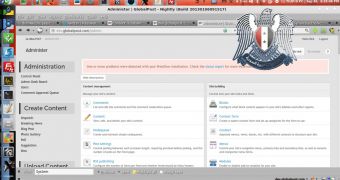The Syrian Electronic Army has hacked the website and the Twitter account of the GlobalPost, a US-based company that focuses on international news.
The hackers targeted the GlobalPost because of an article in which alleged members of the Syrian Electronic Army were named. The company also believes that the hacktivists might not like some of its other Syria-related coverage as well.
“Think twice before you publish untrusted information about Syrian Electronic Army (SEA). This time we shutdown your website and take down your Twitter account, next time you start searching for new job,” the hackers wrote both on GlobalPost.com and on the hijacked Twitter account.
The hackers have also published a screenshot which shows they had access to GlobalPost’s administration panel.
“GlobalPost's website and Twitter account were briefly hacked today by the organization,” GlobalPost stated. “GlobalPost never lost control of the content published on our website.”
Both the website and the Twitter account have been recovered. The article on the Syrian Electronic Army has not been removed from the website. Despite the threats, GlobalPost says it will continue to cover “every aspect of the ongoing Syrian war.”
GlobalPost is just the last in a long line of media companies targeted by the Syrian Electronic Army. It’s uncertain how they’ve hijacked the website and the Twitter account, but judging by previous attacks, it’s likely that they’ve relied on spear phishing.
In a recent interview we’ve had with Gordon MacKay, CTO of Digital Defense, the expert highlighted the fact that the group’s phishing attacks show that the Syrian Electronic Army is intelligent and well organized.
“SEA members were wise to not use advanced methods since lesser sophistication is not as costly to the attacker and therefore provides SEA with more ROI. With that, one can argue they are effective planners as they have technical ability and understand the economics of warfare,” MacKay noted in the interview.

 14 DAY TRIAL //
14 DAY TRIAL //